Interpretations
The fact that both the National Curriculum in England and the national assessment objectives that frame public examinations at GCSE and A-level include a focus on ‘historical interpretations’ (plural) as well as referring separately to students’ own use of evidence – makes it very clear that there is an important distinction between the disciplinary concepts of ‘evidence’ and ‘interpretations’. While the former is concerned with students’ use of sources to develop their own interpretation of events; the latter is concerned with students’ exploration and explanation of how and why interpretations developed by historians differ from one another. (Both have a critical role to plan in students’ historical learning – and both need to be carefully planned!) Giving students the confidence and the knowledge to handle competing interpretations is undoubtedly challenging, but the materials in this section show how careful planning within and across the key stages (including Key Stage 3) can help students of all ages to engage effectively with interpretations examining the relationship between historians’ accounts (in books and on television) and the particular questions that they have chosen to answer, as well as the sources on which they claim to have drawn. Read more
-

The mechanics of history: interpretations and claim construction processes
ArticleClick to view -

The wrong beach? Interpretation, location and film
ArticleClick to view -

Top Tip: Approaches to planning interpretations-focused enquiries.
ArticleClick to view -

Tracing the popular memory of Rosa Parks with Year 9
ArticleClick to view -

Triumphs Show 164: interpretations at A Level
ArticleClick to view -

Triumphs Show 182: A public lecture series
ArticleClick to view -

Unpicking the threads of interpretations
ArticleClick to view -
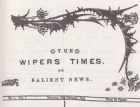
Using The Wipers Times to build an enquiry on the First World War
ArticleClick to view -
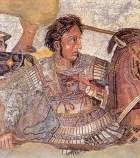
Using ancient texts to improve pupils' critical thinking
ArticleClick to view -

Using fictional characters to explore the relationship between historical interpretation and contemporary attitude
ArticleClick to view -

Using the Attainment Target in Key Stage 3: Interpretations of History
ArticleClick to view -

Using the Harkness method to help post-16 students make confident historical claims
ArticleClick to view -
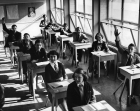
What Have Historians Been Arguing About... Histories of education – and society?
ArticleClick to view -

What Have Historians Been Arguing About... medieval science and medicine?
ArticleClick to view -

What is Bias?
ArticleClick to view -

What’s the wisdom on… Interpretations of the past
ArticleClick to view -
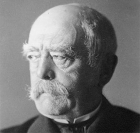
Year 12 write Zambia's history for Zambian students
ArticleClick to view -

Year 7 use oral traditions to make claims about the rise and fall of the Inka empire
ArticleClick to view -

Year 8 and interpretations of the First World War
ArticleClick to view -
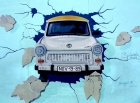
‘If you had told me before that these students were Russians, I would not have believed it’
ArticleClick to view

